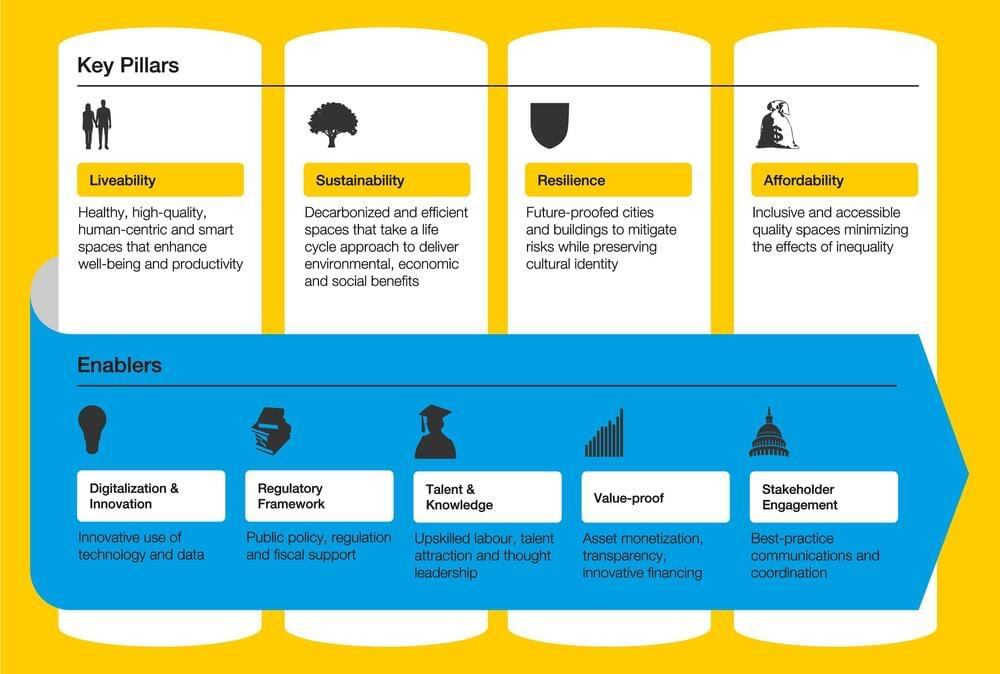Get the latest international news and world events from around the world.

Scientists produce new antibiotics
Scientists have discovered a new route to produce complex antibiotics exploiting gene editing to re-program pathways to future medicines urgently required to combat antimicrobial resistance, treat neglected diseases and tackle future pandemics.
Researchers from The University of Manchester have discovered a new way of manipulating key assembly line enzymes in bacteria which could pave the way for a new generation of antibiotic treatments.
New research published today in Nature Communications, describes how CRISPR-Cas9 gene editing can be used to create new nonribosomal peptide synthetase (NRPS) enzymes that deliver clinically important antibiotics. NRPS enzymes are prolific producers of natural antibiotics such as penicillin. However, up until now, manipulating these complex enzymes to produce new and more effective antibiotics has been a major challenge.

This is what buildings of the future will look like: and 5 ways to get there
Learn More.
World Economic Forum.
The gigantic roof regulates heat and light, drawing on ancient Mayan design.
Learn more about the importance of sustainable buildings.
For years many of us in the real estate community have recognized the pressing need for change. In early 2020, the World Economic Forum’s Real Estate partners set out to prepare a report on the future of real estate.
At the time, we thought sustainability had to be our core focus; sustainability in the broader sense of its meaning – clearly highlighting the importance of making real estate more environmentally friendly, but also addressing questions such as wellness, community, and the inclusiveness of buildings and urban spaces. For example, inclusiveness doesn’t touch only on city planning, architecture and accessibility, but also on affordability. All these required a concerted response from the real estate sector, from urban entrepreneurs and from policy makers.
Man Keeps Mysterious Indestructible Rock That Turns Out to be a Scientific Marvel More Precious Than Gold
After finding a mysterious indestructible rock in 2015, Hole’s rock has finally been carbon-dated to roughly 100–1,000 years old meteorite.

How NASA Technology Is Improving Air Travel
NASA’s aircraft flight scheduling technology will start rolling out in 2023 to better coordinate aircraft movements at airports across the United States. It follows almost four years of research and testing by NASA and the FAA.
NASA’s surface metering technology is being integrated into the FAA’s airport surface management technology called the Terminal Flight Data Manager (TFDM) that will get implemented at 27 airports around the US.
The platform aims to improve efficiency, shift departure wait times from the taxiway to the gate, save fuel, reduce emissions, and give airlines and passengers more flexibility in the period before leaving the gate.
I Tasted The (Delicious) Meat Grown in These Vats
Upside Foods opened the largest synthetic meat factory in the world. It’s designed to grow thousands of pounds of chicken, beef and pork. Backed by Bill Gates and Richard Branson, Upside is betting consumers will go for vat-grown meat.
#Food #HelloWorld #BloombergQuicktake.
About Hello World:
Meet the exotic, colorful, and endlessly entertaining characters that make up the technology industry beyond big tech. Watch Bloomberg’s Ashlee Vance in a journey around the world to find the inventors, scientists and technologists shaping our future: https://youtube.com/playlist?list=PLqq4LnWs3olU-bP2R9uD8YXbt02JjocOk.
——-
Like this video? Subscribe: https://www.youtube.com/Bloomberg?sub_confirmation=1
Become a Quicktake Member for exclusive perks: https://www.youtube.com/bloomberg/join.
QuickTake Originals is Bloomberg’s official premium video channel. We bring you insights and analysis from business, science, and technology experts who are shaping our future. We’re home to Hello World, Giant Leap, Storylines, and the series powering CityLab, Bloomberg Businessweek, Bloomberg Green, and much more.

China has a missile that was previously thought impossible, report claims
China has tested a weapon that was previously thought impossible, according to a new report.
The hypersonic weapon test saw the country fire a missile from another spacecraft that was already flying at least five times the speed of sound, the report claimed. Such technology was previously thought impossible and US experts are unsure how China was able to actually conduct the test, it said.
Though the test happened in July, and was reported closer to the time, the nature of the breakthrough was first revealed in a new report from the Financial Times. The paper reported that experts have been poring through data in an attempt to understand how China was able to build the technology – as well as what exactly the missile was intended to do.
New Particles Discovered that Provide Answers to Dark Matter Comsic Riddle
#Universe #Documentary #Space.
Join this channel to get access to perks:
https://www.youtube.com/channel/UC1ulZ3lMW1mU6sZSqcxDWEw/join
‘Super jelly’ made from 80 per cent water can survive being run over
It could replace cartilage in knees and even help create soft robots 🤯
Is it a bird? Is it a plane? No, it’s ‘super jelly’ — a bizarre new material that can survive being run over by a car even though it’s composed of 80 per cent water.
The ‘glass-like hydrogel’ may look and feel like a squishy jelly, but when compressed it acts like shatterproof glass, its University of Cambridge developers said.
It is formed using a network of polymers held together by a series of reversible chemical interactions that can be tailored to control the gel’s mechanical properties.
Neuroscience explains exactly why we should be grateful for…our brains
All these bequests of your bigger brain cortex mean you can gather four generations around a meal to exchange banter and gossip, turn information into knowledge and even practice the art of what-not-to-say-when.
You may even want to be thankful for another achievement of our neuron-crammed human cortices: All the technology that allows people spread over the globe to come together in person, on screens, or through words whispered directly into your ears long distance.